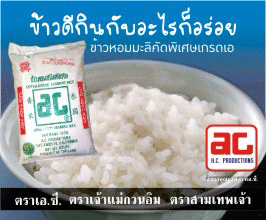Greetings everyone! This Saturday is Halloween.
Greetings everyone! This Saturday is Halloween. Although this year will be quite different because of COVID-19, I know some of you will still be celebrating. Just try to be safe and party responsibly. HAPPY HALLOWEEN!!! We all need to work together, and we’ll get through this. Okay, with that said, let us get started. This week I will be revisiting an old question I received via email, as well as update some law information regarding multiple marriages at the same time, or what is called “polygamy”.
MULTIPLE MARRIAGES - BIGAMY
This inquiry came from “AT”, who wanted to know: "if a person is still married in Thailand and has not yet divorced, can that person come to America and marry a U.S. Citizen?"
The answer to this question is NO. If a person is legally married to someone, meaning they went through the formal legal requirements of a marriage, then they are not free to legally marry another person without first dissolving that first marriage. Marriage is a legal contract between two people ("spouses") that establishes certain rights and obligations between the parties, one of which, is an obligation not to enter a marital union with someone else! Bigamy is unlawful in most US jurisdictions: A person who is lawfully married to one person, then gets subsequently married to another person commits a crime called “bigamy”. Bigamy is illegal in most states of the US as well as most developed countries. Thailand is included on this list. Here in California, such a crime is charged as a felony.
Each state in the U.S. may have different laws and requirements regarding marriage, so it is recommended that you first contact the appropriate official of the state in which you desire to marry to find out what the requirements are. For California*, the basic requirements are:
1) Free to Marry: The two parties to the marriage must not already be married.
2) Unrelated: The two parties must not be related to each other.
3) Of Consenting Age: The parties must be at least 18 years old or have their parent’s (or legal guardian’s) written consent to marry.
IMMIGRATION
Now that we understand that you cannot be married to more than one person at a time, how does that involve immigration law? Well, whenever you apply for a U.S. immigration benefit, you are required to make certain disclosures such as your full name, your address, and your marital history. If you are applying for a marriage-based green card for example, and your current marriage is not your first marriage, Immigration will ask you for proof that your current marriage is valid. As evidence Immigration will require proof that you dissolved any prior marriages; that is, divorce judgments and/or decrees. Therefore, you cannot have concurrent-multiple marriages (being married to more than one person at a given time). As a warning: if you state that you have only been married to one person, but in fact, you have been married before, Immigration can find out and will then charge you with fraud. I have seen this before with one of my clients and it was not fun to fix this non-disclosure issue.
If you have questions or comments related to this article, or if you have some other legal issue you would like me to assist you with, please contact my office at (818) 846-5639, or my Thai direct line at (818) 505-4921. And for those of you reading this article while in Thailand or outside of the United States, I am now reachable using the LINE app. My LINE ID is: JC_Esq If you have any questions that you would like to be answered in future articles, please email me at: JC4LAW@HOTMAIL.COM. And if you have not done so, please be sure to visit my website at: WWW.JC4LAW.COM for general information regarding this and many other topics in Business, Property and Family Law, and also on FACEBOOK at: https://www.facebook.com/ThaiAttorney Be sure to follow (and "like") me for the most recent updates in the law!
Disclaimer: The information contained herein have been prepared for informational purposes only and are not to be considered legal advice unless otherwise specified. If you have a specific question regarding your personal case, please contact the Law Offices of Joseph Chitmongran for a full consultation.


































